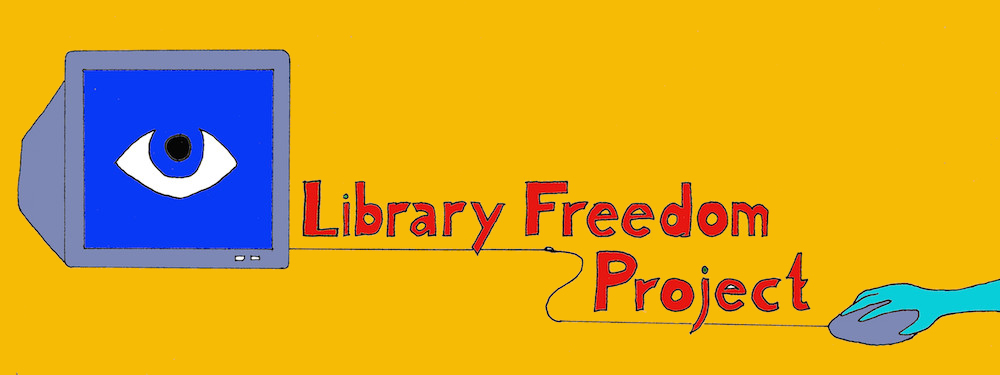GUEST POST: PRIVACY — WHO NEEDS IT?
Continuing our guest blogger series is Zak Rogoff, campaigner at the Free Software Foundation, who also blogs over on his personal site. Zak is a friend of LFP and a rad tech activist, and we’re jazzed that he agreed to write the following post about why all of us need privacy, example threat models that can help us understand this need, and strategies we can use to fight back.
Privacy — who needs it?
By Zak Rogoff
The benefits of online privacy can seem intangible. So what if someone on the Internet knows what someone else is doing on the Internet? But for many people (potentially including you or people you know), privacy tools are a shield from very real and immediate threats. Let’s meet seven of them:
* A teenager in an oppressive family that wants to read queer literature
* A young woman that is secretly pregnant, looking for health information
* A domestic violence victim searching for a hotline to get help
**The threat:** bigoted or abusive family members
**Some privacy tools that would help:** HTTPS Web encryption, strong passwords, VPN or Tor Browser.
In this case, the potential snooper is a closed-minded relative or partner using a software tool to monitor the protagonist’s Internet traffic. If you’re wondering how they might do that, you’ll be unhappy to learn that there are a variety of programs that can accomplish this from another computer in the same house, and they are available cheaply or for free.
This is probably the most common type of threat. However, people who have a visible presence on the Internet often face more technologically sophisticated snoopers. For example:
* A journalist challenging sexism in online communities
* Black Lives Matter activists fighting for their human rights
**The threat:** doxxing (publicly revealing personal stolen personal information) by political opponents
**Some privacy tools that would help:** HTTPS Web encryption, strong passwords, GnuPG email encryption, Tor Browser.
As people are increasingly aware, speaking about controversial subjects on the Internet can provoke some mean and violent harassment. Sometimes technologically skilled online harassers can identify their victim’s phone numbers, address or employer and share the information publicly, to provoke even worse harassment. This is called doxxing.
As if that weren’t scary enough, there are a smaller (but surprisingly large) number of people that are being spied on by large organizations with lots of technological resources:
* An employee that has witnessed a corporate crime and wants to tell a journalist about it
* A government employee that needs to expose illegal surveillance
**The threat:** communication and tech companies, potentially cooperating with government cybermilitary organizations like the NSA (USA), GCHQ (UK), Golden Shield (China)
**Some privacy tools that would help:** HTTPS Web encryption, strong passwords, GnuPG email encryption, Tor Browser, full-disk hard drive encryption, airgapping
Sometimes powerful institutions try to fire people, get them thrown in jail, or even kill them to prevent them from releasing embarrassing information. It’s important for these whistleblowers to be able to hide their tracks from the organizations who want to stop them, and they need powerful tools to do so because their adversaries have extremely sophisticated technological resources.
#### But I’m not pregnant or a whistleblower or any of these things!
There’s another thing about privacy tools: it’s good for people to use them even when they aren’t immediately facing a threat like the example people in this post. There are four benefits to using privacy tools even when you don’t believe you need them:
* It helps you practice in case you need them later or want to teach someone.
* It encourages other people you communicate with to learn how to use them, and it makes it more socially mainstream to use the tools. Right now, many of the people that need them most have no idea they even exist.
* It increases the total amount of protected traffic moving through the Internet, which means that it’s harder for some kinds of surveillance techniques to find the information they want to get. Needle in a haystack.
* It gives you a chance to find problems with the tools and report them to the developers. Most privacy tools are free/libre/open source software, which means they are developed by a community, working transparently and in the open, and they rely on your feedback to make the software as good as it can be. Go to the Web site of any FOSS privacy tool and you will find a way to report a problem or request a new feature.
We live in a time of rapid technological change and our culture and government do not always keep pace with the new threats that these technological changes bring against our freedom of information and expression. People are threatened by surveillance every day, and spreading privacy tools can help them. Let’s resist surveillance together!

[…] https://libraryfreedomproject.org/privacywhoneedsit/ […]